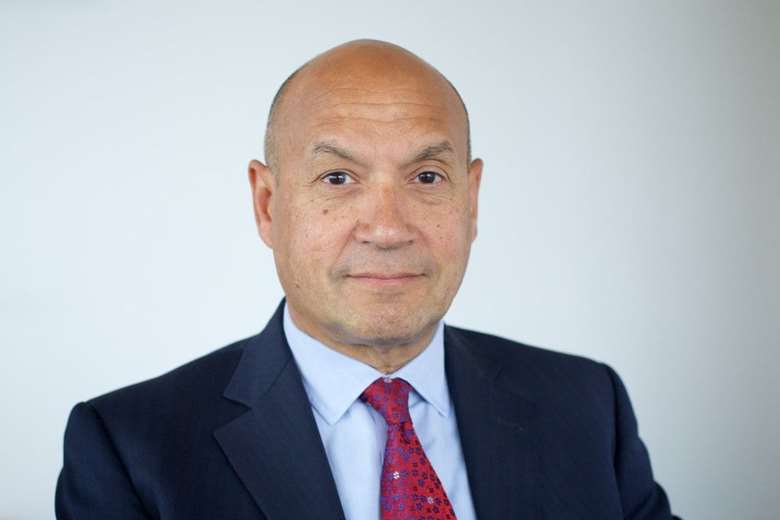Government treatment of early years sector 'unforgivable'
Catherine Gaunt
Wednesday, June 16, 2021
Early Years Alliance chief executive Neil Leitch has said the Government’s treatment of early years settings during the pandemic was ‘unforgivable’ and vowed to continue to put pressure on ministers for more funding for the sector.

Yesterday, the charity published the shocking findings of its Freedom of Information (FOI) investigation which revealed that ministers have been aware that early years settings were severely underfunded for years and that the 30-hour childcare policy would lead to higher costs for parents.
Speaking at the organisation’s annual conference yesterday evening, Mr Leitch said that early years had been ‘on the frontline throughout the crisis’, but the Government had failed to ensure that settings ‘had the support to operate safely and sustainably’.
He said, ‘When the Government announced last year that schools could apply for funding to meet additional cleaning costs, worth up to £75,000 – early years was excluded.
‘When it launched a Covid-19 workforce fund, to support schools and colleges with the cost of staff absences – early years was excluded.
‘When lateral flow tests – which we were told are so vital in our fight against the virus – were rolled out to colleges, secondary schools, primary schools, and maintained nursery schools, early years professionals working in PVI settings were still being told to travel to community testing centres, often in the middle of a working day.
‘And when, after months of battling, nurseries and pre-schools were finally given access to the tests, childminders were left out in the cold.
‘And when did childminders finally get these tests? Just a few days before they were made available to the general public. It’s not hard to work out exactly where we sit on the government’s list of priorities.’
Speaking about the lack of education recovery funding for the sector he said, it was ‘one of the starkest and most galling examples of neglect’ that because of the original £1.7 billion that the Government had committed to help education settings post-pandemic, the sector received just 0.583 per cent.
While this had risen ‘after sector lobbying, the amount of money going to our sector increased from a measly £10m to £153m - this still represents less than 5 per cent of the overall pot.’
Of the Alliance’s investigation he said, ‘The Government was so determined not to release this information that it is only now, after two years of legal challenge, that we finally have it.
‘And now we know why they were so desperate to hide it.
‘Because what these documents show is the Government knows full well that what we are delivering is early education. And it knows full well what it costs to do so.’
In response, the Department for Education has said the findings 'pre-dates the significant uplifts' to rates paid by Government for the free childcare offers in 2019 and 2020, and that it had invested more than £3.5 billion in each of the past three years on its free childcare offers.
Asked how the Alliance would continue to support providers, Mr Leitch said, 'We will continue to battle for more support, and more training and a switch of the money from focussing on speech and language to social and emotional development.
'I've asked for backfilled money - part of that £153m I am told will be going to early years settings to help allow their staff to become better qualified, better trained in recovery and allow for temporary staff to be paid for by Government.'
Children’s commissioner’s ‘Big Ask’ tops half a million responses
More than half a million children responded to the children’s commissioner’s ‘Big Ask’ survey, the ‘once-in-a-generation’ review of the future of childhood, launched in April, and inspired by the post-war Beveridge report, delegates heard.
Children’s commissioner Rachel de Souza gave an update on the month-long survey with children and young people about their experiences of the pandemic and hopes for the future, which finished last month and will form the basis of a ten-year plan to propose policies to put children ‘at the heart of recovery’.
She said the response had been ‘absolutely incredible. We received half a million responses from children and young people. It’s not only the largest response to any survey in this country ever, we can’t find a bigger one anywhere in the world, except the US census.’
Children have responded from all over the country, she said.
‘Crucially, we’ve done everything we can to include the experiences of babies toddlers and pre-school children.’
They held focus groups with parents and professionals working with them and heard about their concerns.
This included parents raising worries about their children missing out on time in early years and the impact on their development, and whether they would be ready to start school, she said.
Racial trauma
Also speaking at the conference was Guilaine Kinouani, critical psychologist, founder of Race Reflections, and author of a new book Living While Black, who spoke about how racial trauma can impact on parents and children and be passed down from generation to generation, and advised early years settings on how to make a difference in their settings.
She said, 'A lot of the time people don't take action because they fear getting it wrong, because they fear being accused of racism, or they fear they might alienate White staff, for example - those are very common concerns.
She urged early years practitioners to 'be open with yourself in relation to your own anxiety, what is your own concern, so that your anxiety doesn't become a blocker to wanting to address those issues.'
Mr Leitch also announced that the Alliance has convened an advisory group to look at racial discrimination and equality in the early years.
Supported by external experts, the group has been looking at what the organisation can do in relation to issues of equality, inclusion, race and discrimination, and more information on its work will follow.
To complete the line-up was Nobel prize-winning US economist and academic Professor James Heckman who spoke about the evidence that showed the benefits to society of investing in early years ‘of 13 of 14 per cent per annum of each dollar invested’. He also highlighted evidence that showed that the benefits of early years education in reducing inequality and improving lives were passed from one generation to the next.







